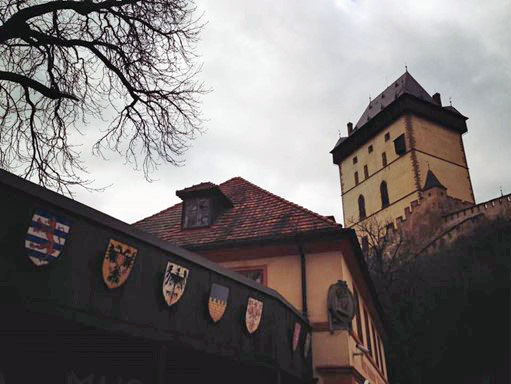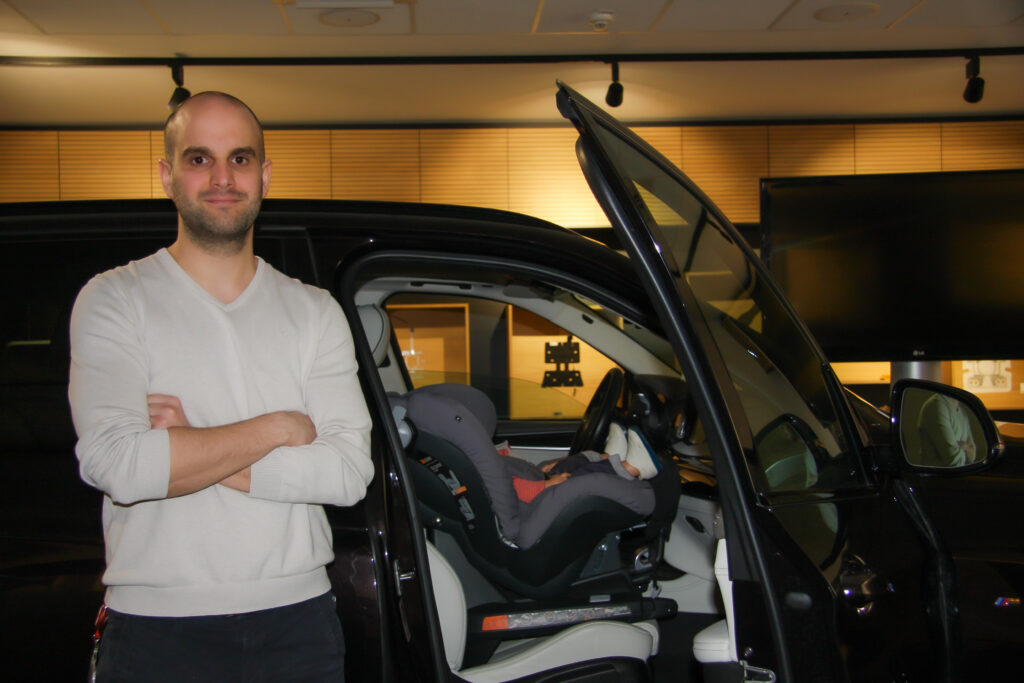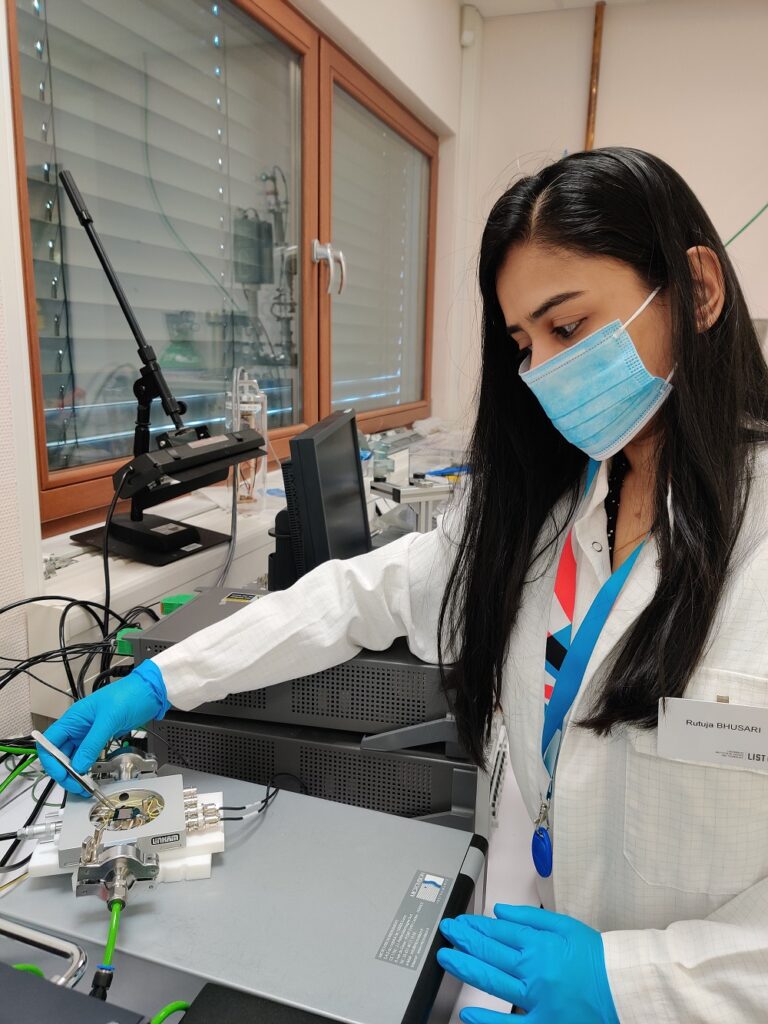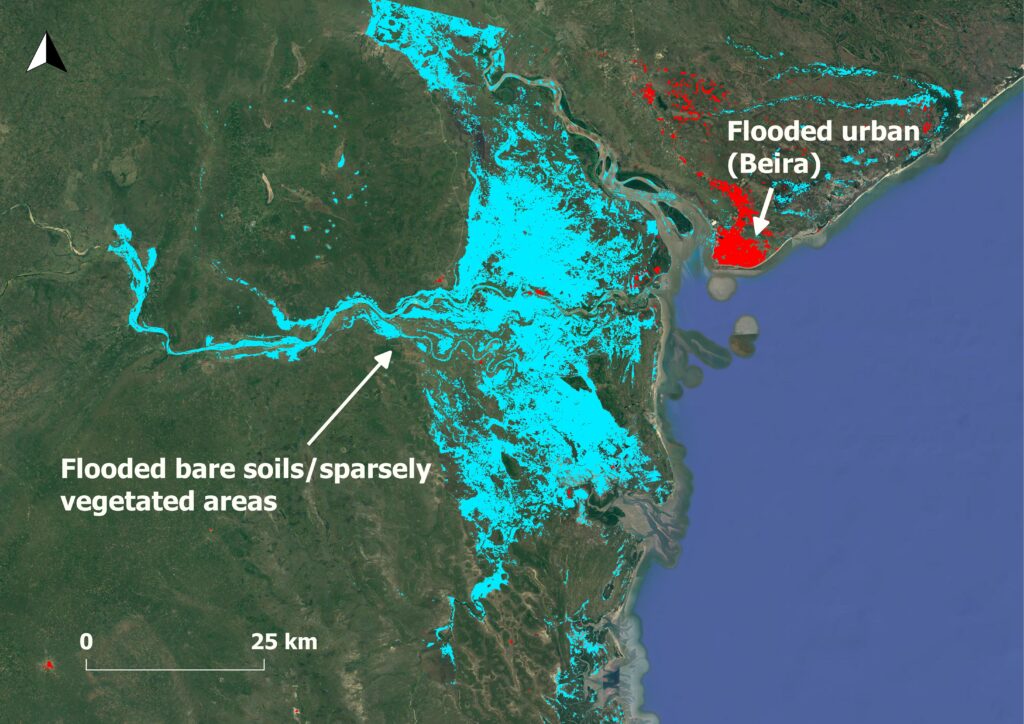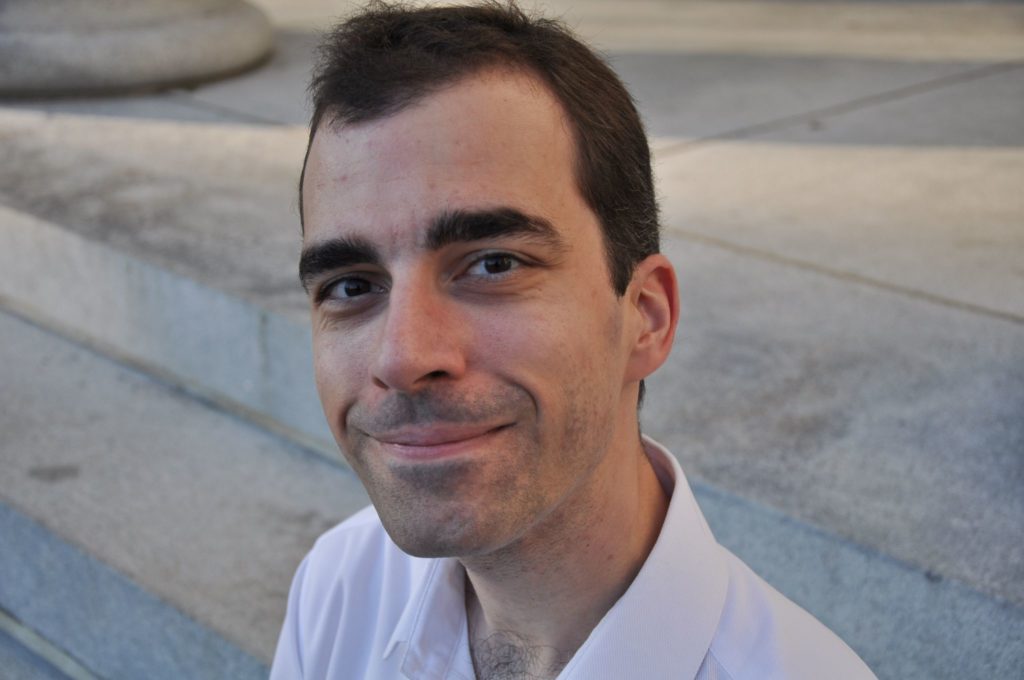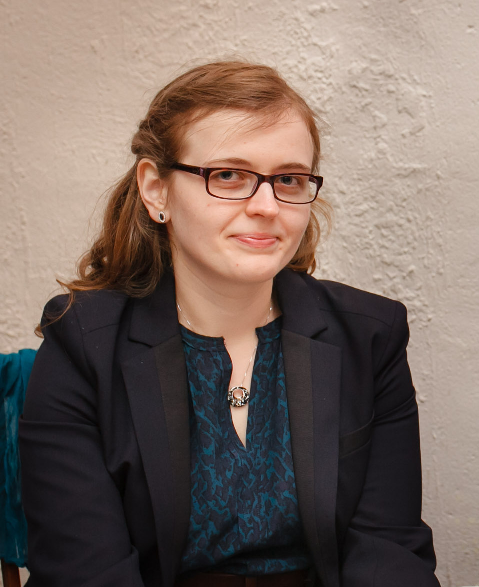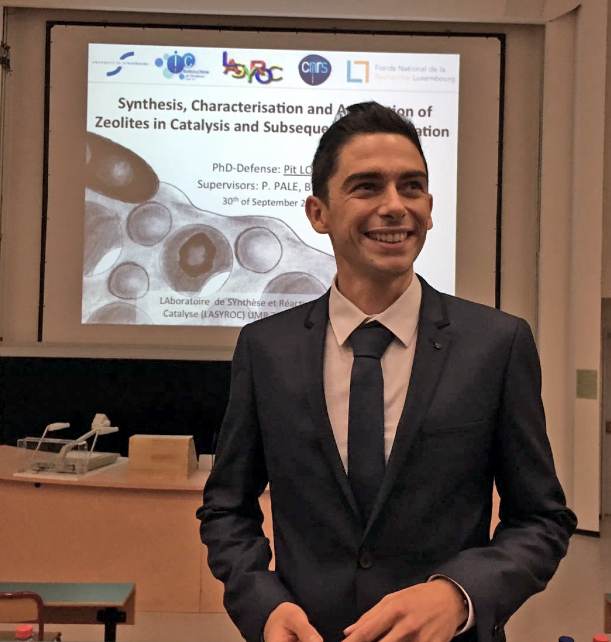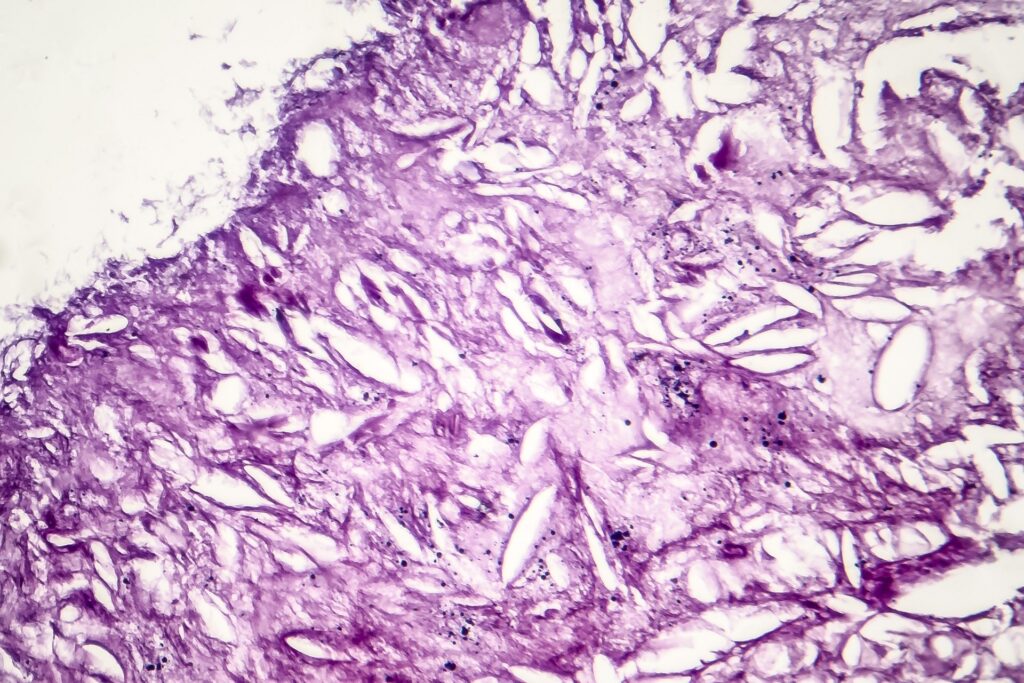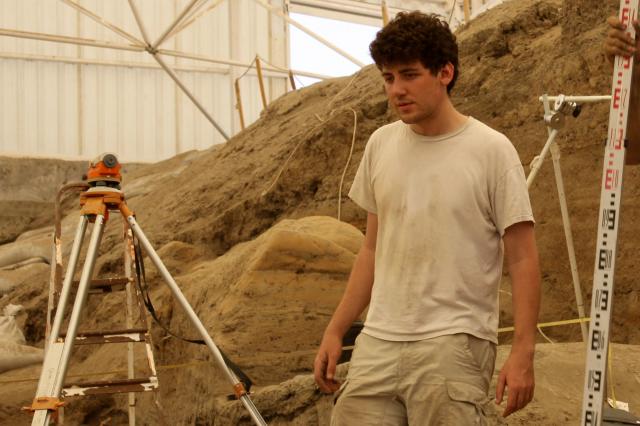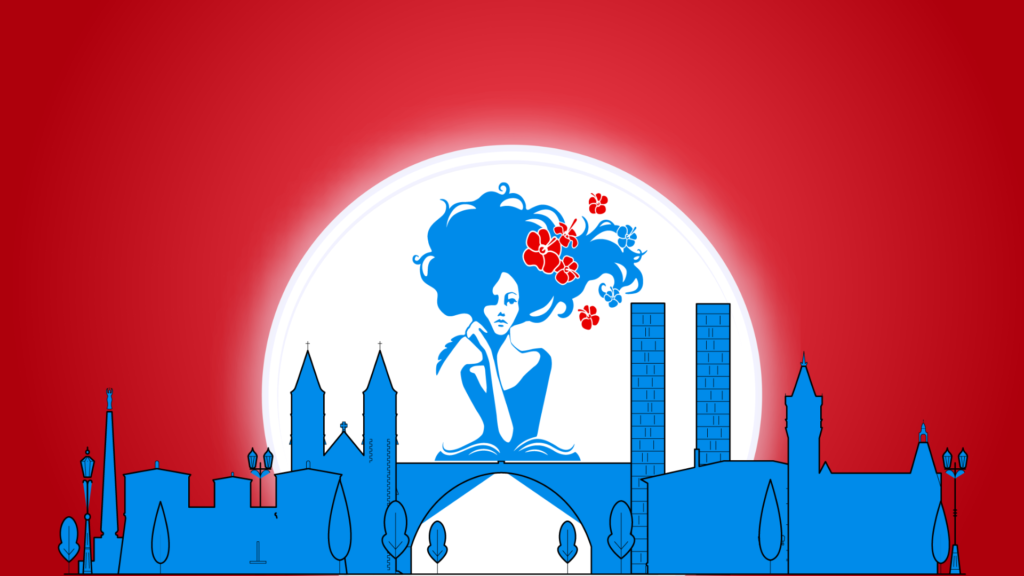
Anna Scaini’s appetite for becoming a researcher was stirred at University, stemming from a desire to ‘save’ the last natural river in Europe, which runs close to her home town and causes dangerous local flooding. The Italian national is taking the first step towards pursuing her goal as she prepares to complete her PhD thesis in Hydrology at the Luxembourg Institute of Science and Technology (LIST).
The braided Tagliamento river flows freely from the Alps to the Adriatic sea, stretching over a length of 178km. It is one of a kind, in that its morphological units are intact (complexity is intact), like it was for most of the European rivers before human intervention. The river’s ecosystem is in danger from local government plans to instate large flood retention basins. Anna Scaini became a scientist to help save the river and explains:
“Being a researcher allows me to gain the technical knowledge required to have a critical and objective view on the problem, a necessary first step to pursue my dream.”
Investigating water paths
Anna Scaini research domain is hydrology, but what researching rivers look like in practice? Anna’s PhD project is part of an FNR CORE project – Anna explains what it’s about:
“My research tries to quantify the importance of water flowing below the soil surface until reaching a stream located in a forested catchment in Luxembourg.”
“To do this, I am studying a ‘slice’ of the stream, combining artificial irrigation experiments with a hillslope model, meant to reproduce and understand the data collected in the field.”
“I am investigating which path water is taking before reaching the stream, and how combined water and tracer information can be used to understand discharge dynamics. The site is characterized by slate bedrock, which means that water can infiltrate through fractures up to an unknown and variable depth where the fractures close up.”
“These kinds of structures make it difficult to predict water movement below the soil surface, and that is what we try to do with my research.”

Anna has completed the field work for her PhD and is currently in the process of physically writing her thesis, meaning her daily routine is currently not quite as exciting as investigating rivers:
“I press the snooze button a few times before managing to get out of bed, check emails and news, get ready quickly and go to work in LIST, at the Belvaux site. I need to read a lot of articles, prepare and fix some figures, use some Matlab scripts, all of that with the aim of writing up the last chapters for my thesis.”
“Conditions are great here in Luxembourg”
Luxembourg naturally has a high concentration of researchers from other countries, but how did Anna end up in Luxembourg of all places?
“I chose Luxembourg amongst other options because I felt I was considered an employee first. The drawback when I started was that the University environment was somehow far from the cultural point of view, but during the years things have improved noticeably and today the situation is better than ever.”
She adds: “Conditions are great here in Luxembourg: too often young researchers are considered cheap and student-like labour. I immediately liked the higher role we can have here, I find it fair.”
Impacting society as much as science
Anna’s PhD project will help her gain the know-how needed to help tackle the issues facing the Tagliamento river, and give her the ability to view the issues both critically and objectively. This is not the only area where Anna wants to make an impact during her career, she explains that she would like to help push forward the domain of hydrology:
“I would like to work on something important, on a problem that if solved, would make a difference, pushing forward not only science but also society. Hydrology is a relatively young but very interdisciplinary science, and there are still many unknowns and gaps to fill. I hope I can actively work on that.”
More about the project
CORE Project ‘Eco-hydrological couplings for investigating stream flow generation processes’ – ECSTREAM (C12/SR/40/8854) – PI: Laurent Pfister, LIST
Publication related to this project: Scaini, A., Audebert, M., Hissler, C., Fenicia, F., Gourdol, L., Pfister, L., John Beven, K., 2017. Velocity and celerity dynamics at plot scale inferred from artificial tracing experiments and time-lapse ERT. J. Hydrol. 546, 28–43. doi:10.1016/j.jhydrol.2016.12.035
Published 30 March 2017
In 2015, Anna won the AGU (American Geophysical Union) student video contest, which enabled her to attend the AGU Fall Meeting in the US, the largest Earth and space science meeting in the world.
SEE ALSO..
RELATED PROGRAMMES
About Spotlight on Young Researchers
Spotlight on Young Researchers is an FNR initiative to highlight early career researchers across the world who have a connection to Luxembourg. This article is the fourth in a series of around 20 articles, which will be published on a weekly basis. You can see more articles below as and when they are published.


